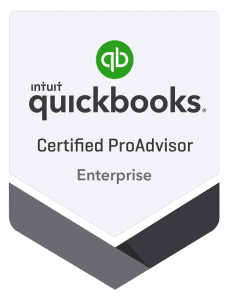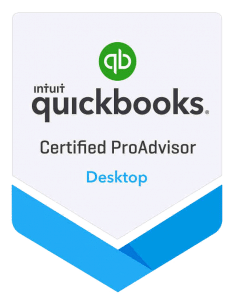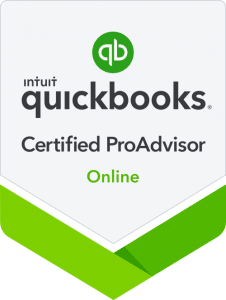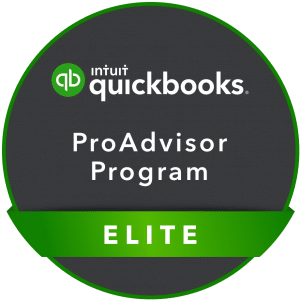It’s estimated that around 45% of small businesses fail within five years, according to Investopedia. This can occur due to a variety of circumstances, but poor financial management is one of the most notable. Fortunately, outsourcing to a professional is a great way to handle these responsibilities.
Working with a certified ProAdvisor means finding someone who can understand your goals and explain their process clearly. A reliable QuickBooks bookkeeper helps you stay focused on running your business. This guide will help ensure you make the ideal choice for your needs.
1. Understanding Their Role and Responsibilities
A certified ProAdvisor should know how to handle the software and explain what they actually do for your business. Some offer setup and training, while others take on daily bookkeeping. Don’t assume you already know what’s included.
Ask for a breakdown of the tasks they’ll cover and which ones fall on you. This helps prevent gaps in your workflow or missed deadlines.
2. Evaluating Experience with Similar Clients
Bookkeeping isn’t the same for every business. You’ll need someone who understands your:
- Size
- Structure
- Operations
If they’ve worked with similar companies, they’ll know how to organize your books and spot problems early. They’ll also understand how to apply QuickBooks accounting methods that make sense for your situation. That experience can save you from costly mistakes.
3. Reviewing Their Approach to Ongoing Support
Even if you only need occasional help, it’s crucial to hire someone who’s available when problems come up. Some advisors offer scheduled reviews, while others only respond to direct requests.
Ask how often they check in and how quickly they reply. You should also know what kind of support you’re paying for. Look for services like:
- Monthly account reviews
- Error resolution and clean-up
- Troubleshooting software issues
- Staff training on bookkeeping tasks
A clear support plan makes communication easier and avoids delays.
4. Asking About Their Preferred Communication Style
Not everyone uses the same tools to stay in touch. If they prefer long email chains and you need quick replies, that mismatch will cause problems. Ask how they usually talk with clients, whether it’s by:
- Phone
- Virtual meetings
Inquire how quickly they typically respond. Clear communication makes every task smoother and helps avoid confusion.
5. Clarifying What’s Included in Their Services
You don’t want to guess what you’re paying for. Some advisors offer full-service support, and others stick to consulting. Read their service agreement carefully and ask what’s included in their monthly fees.
If something’s missing, ask if it’s available as an add-on. Services may cover things like:
- Payroll setup and tracking
- Bank reconciliation
- Monthly reporting
- Data correction and backup
- Invoice and billing management
Knowing what’s covered protects you from hidden costs later.
6. Checking How They Handle Software Updates
QuickBooks updates can affect how your data is entered and processed. A reputable professional will:
- Watch for bugs
- Test updates first
- Explain how changes will affect your business
If an update causes problems, they should know how to fix it fast. Ask them how they stay informed about these changes. Implementing a smart update process avoids disruptions in your daily work.
7. Making Sure They Stay Current with Industry Standards
Financial tools change fast, and outdated methods can create risk. Ask what steps they take to stay up to date. They might:
- Take classes
- Attend webinars
- Follow news related to bookkeeping
This shows they take their work seriously and aren’t relying on old habits. Staying current is one part of offering professional bookkeeping services that are worth your money.
8. Learning How They Customize Their Process
You don’t want a cookie-cutter system that doesn’t fit your specific needs. Your advisor should adjust their methods based on your:
- Daily operations
- The way you track expenses
- Your reporting goals
This shows they’ve taken the time to understand your business. Look for personalized strategies like:
- Custom dashboards for your reports
- Suggested apps or integrations
- Tailored reminders for recurring tasks
- Adjusted settings to fit your habits
- The use of automation
- Unique workflows for approvals or reviews
A personalized system saves time and helps you stay organized.
9. Seeing How They Manage Data Accuracy
Errors in your books can lead to more substantial problems later. Inquire how often they check for issues and what tools they use to catch mistakes. A reliable advisor will run reports regularly and explain anything that looks off.
They should also walk you through what went wrong and how to avoid similar situations in the future. These checks are a key part of using reliable QuickBooks financial solutions.
10. Verifying Their Availability During Critical Times
Deadlines are especially important during payroll runs. Look into whether they’re available during high-pressure times and how fast they can respond. If they work with many clients, find out how they prioritize requests.
You don’t want to get ignored when something needs immediate attention. Make sure their schedule aligns with the busiest parts of your year.
Red Flags to Avoid
Some advisors may seem qualified at first but show warning signs once you look closer. If they avoid direct questions or brush off concerns, that’s a problem.
A lack of transparency around pricing or experience usually means more trouble later. Be cautious if they pressure you to commit quickly or seem unfamiliar with the version of QuickBooks you use.
Missed deadlines or frequent errors also show poor attention to detail. Watch for signs like:
- Refusing to give clear answers
- Inconsistent communication
- Outdated tools or methods
- No proof of QuickBooks certification
- Vague descriptions of their past work
Avoiding these red flags helps protect your finances and your time. It’s better to walk away early than fix avoidable mistakes down the road.
Find a Reliable QuickBooks Bookkeeper
A trustworthy QuickBooks bookkeeper is clear, consistent, and committed to helping your business stay organized. Pay attention to how they communicate and handle issues under pressure so you can make the right choice.
Cloud Bookkeeping saves clients over 1,000 hours annually with expert financial organization, timely support, and deep local knowledge of San Antonio businesses. Our certified team handles your books with precision and care, helping you focus on growth while we manage the numbers. You can get in touch with us today to learn more about how we can help.






